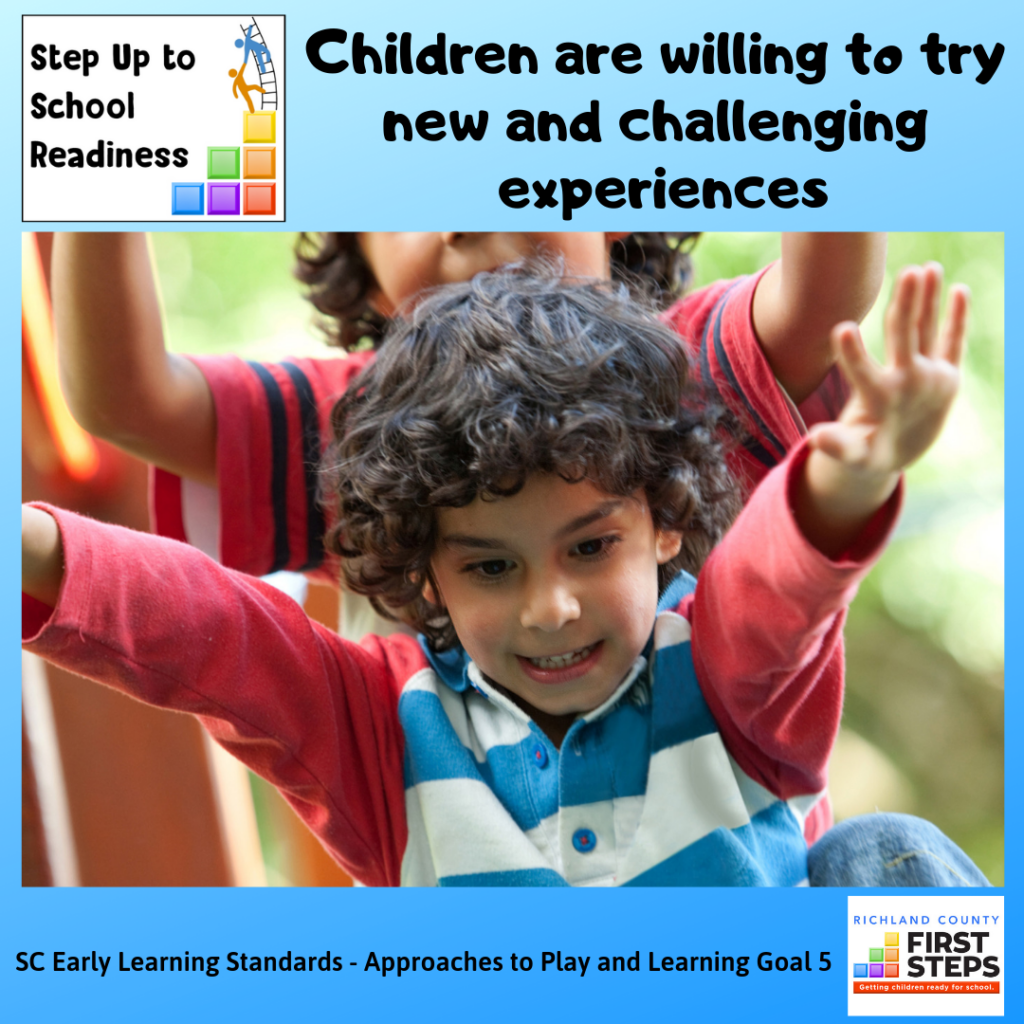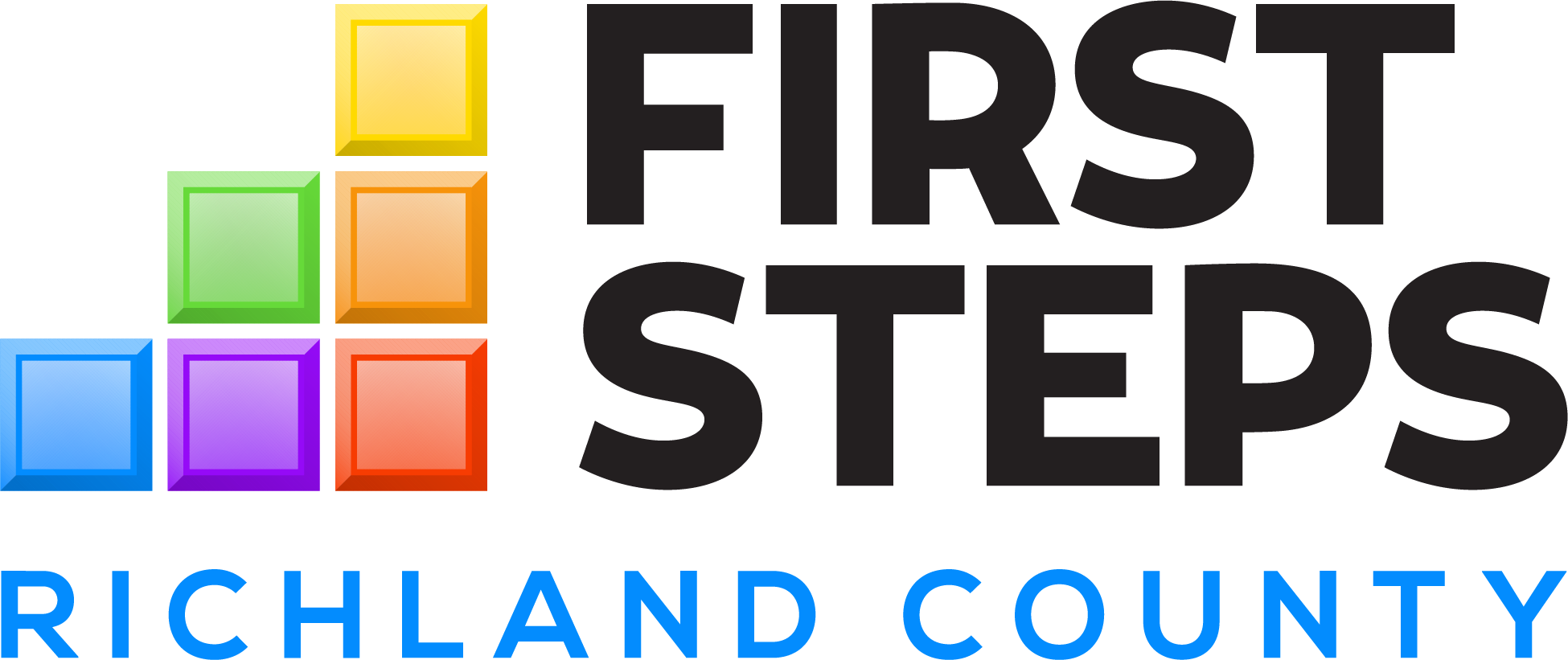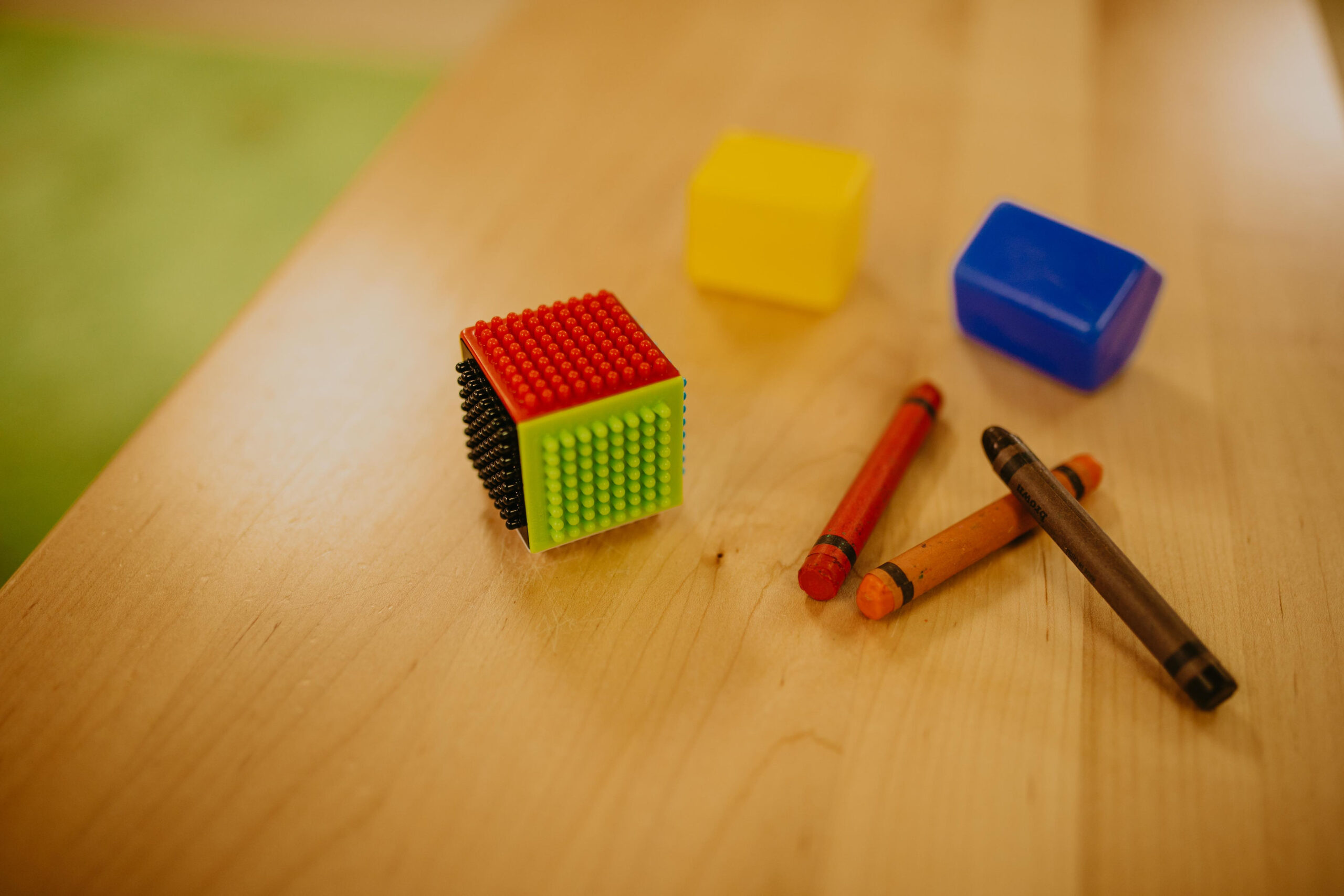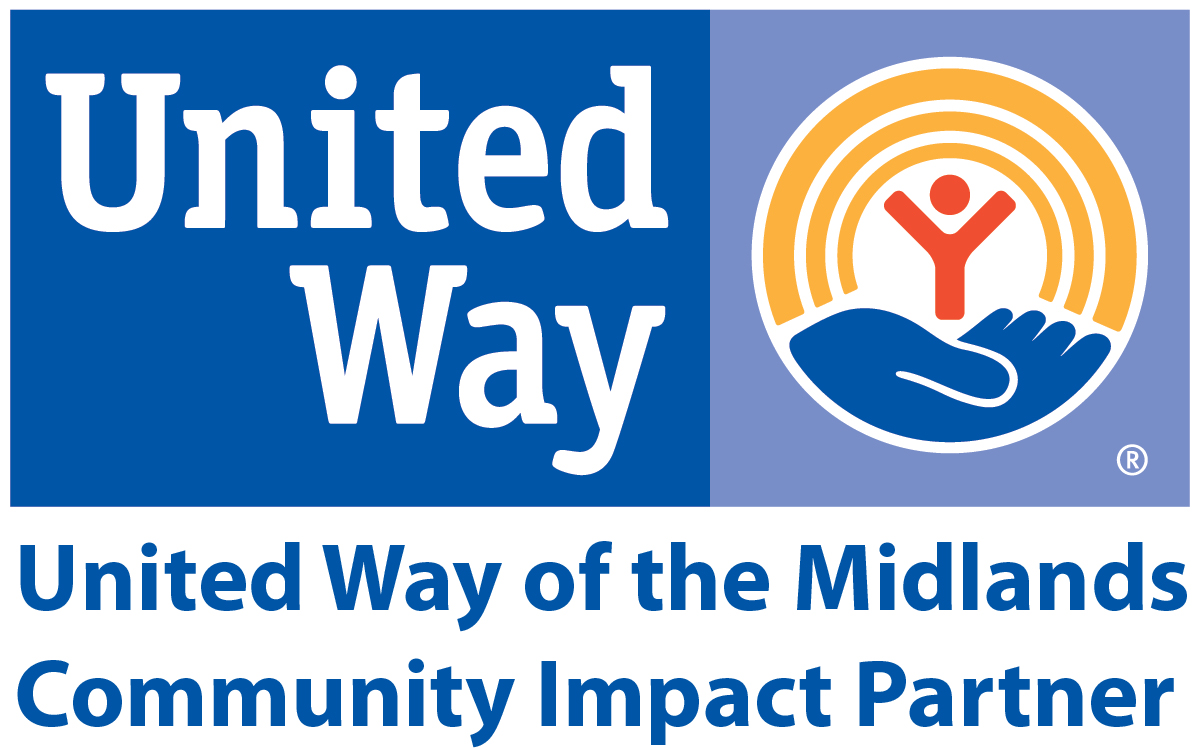
DOMAIN: Approaches to Play and Learning
SUBDOMAIN: Risk-Taking, Problem-Solving, and Flexibility
DEVELOPMENTAL INDICATORS
Infants (Birth to 12 months):
- Explore new experiences both indoors and outdoors (toys, foods, people, spaces) with support of a familiar trusted adult.
- Try to do things that are hard for them (stretch to reach a toy, work to crawl or walk, try to capture tiny crumb with pincer grasp).
- Look to adult for cues and, when reassured, proceed.
Younger Toddlers (8 to 21 months):
- Try unfamiliar experiences and interact with new people with a familiar adult nearby.
- Move away from a familiar adult to explore, but check in frequently.
- Show interest in and try to operate toys that offer a challenge.
Older Toddlers (18 to 36 months)
- Explore freely without a familiar adult nearby.
- Try out new skills in a familiar environment (learn to climb steps and then try to climb ladder to the slide).
- Approach a challenge with confidence (try to lift a heavy object, work on a difficult puzzle, “I can do it.”).
- Want to do things their own way (say “Me do it!”, push an adult’s hand away if the person is trying to help).
Younger Preschoolers (36 to 48 months)
- Express a belief that they can do things that are hard.
- Choose to participate in an increasing variety of familiar and new experiences.
- Accept new challenges when offered.
- Try things they are not sure the can do, while avoiding dangerous risks.
Older Preschoolers (48 to 60+ months)
- Express a belief that they can do things are hard.
- Approach new experiences independently.
- Ask to participate in new experiences that they have observed or heard about.
- Independently seek new challenges.
Click here for more on Step Up to School Readiness and the SC Early Learning Standards.


